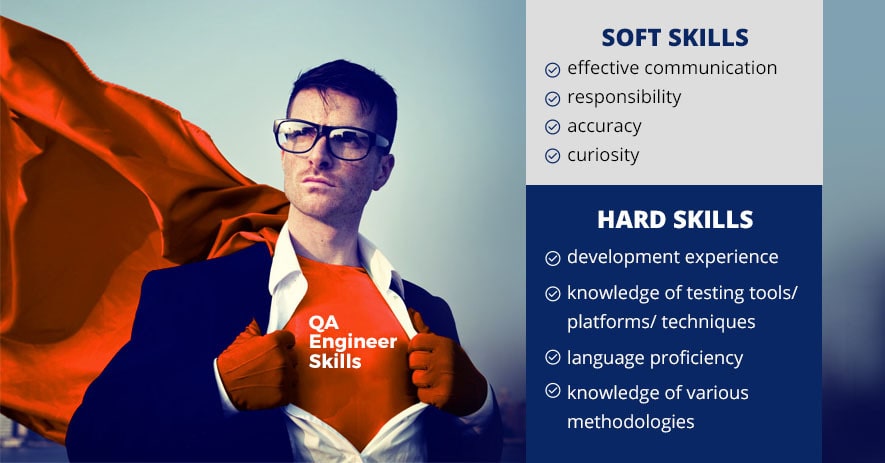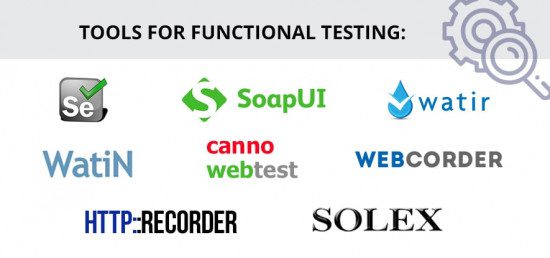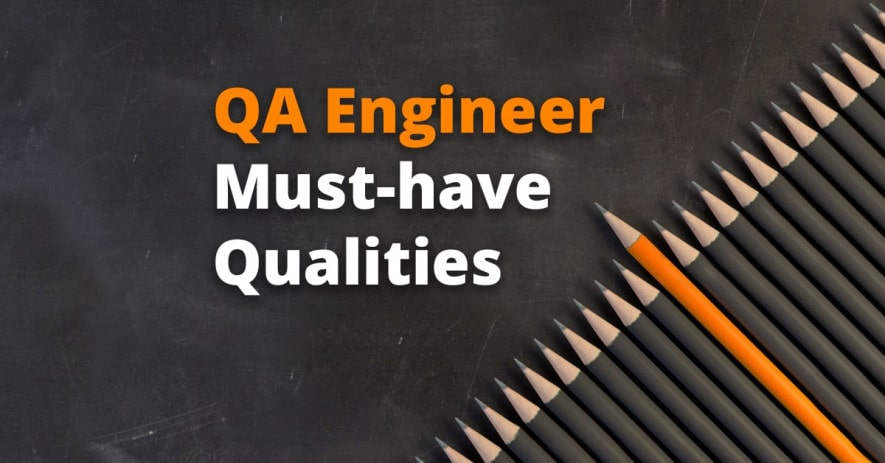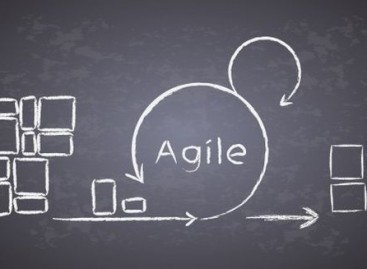- QATestLab Blog >
- QA Management >
- Team Management >
- What Qualities Make a Good QA Engineer?
The Quality Assurance Engineer is not yet as popular as a Lawyer or Science Teacher, but watch out for the word “yet”. This occupation attracts more and more people and is determined as the “happiest job in the United States”, as rated by workers. So, if you want to become one of those lucky guys or looking for a QA specialist to get into your team, take a look at the qualities necessary for the superhero in quality assurance.
QA Engineer: Skills and Duties
Software testing, like any other field of activity, requires a QA engineer to master certain skills. Skills that are professional, practical, or connected with the specialist’s experience are called “hard skills”. And there are also social skills, behavioral, one can say – emotional, the so-called “soft skills”. These skills cannot be called purely professional, they are more personal and do not depend on the specifics of the work. Soft skills include the ability to communicate, self-discipline, responsibility, problem-solving, and time management. Let’s find out what skills are basic for these two groups, basing on the experience of QATestLab specialists on quality assurance.

Soft skills necessary for QA engineer
As one of the basic skills, let’s consider the ability to communicate effectively. This skill is very important for any profession in terms of modern business. IT is no exception. Most projects in the world of technology are created by teams and a software tester, when working in a team, should be able to:
1. Ask the right questions:
- at the very beginning of work, it is always necessary to clarify vague requirements, unclear logic of the functionality, unfamiliar or inaccurate terms;
- in the course of work, find out controversial points, do not be afraid to ask whether the minor defect discovered by you is a bug or a feature;
- it is always necessary to clarify whether the defect found has already been described and whether the doubtful defect/feature was noted in the documentation as the correct behavior of the system.
2. Hold a friendly and informative communication:
- you can often find information that testers and developers are hostile to each other. The final product of their teamwork is a high quality of the software, so all questions and comments
- should be delivered politely, without blames and complaints;
- do not take criticism personally. Not a single specialist came to his own success without mistakes. Be persistent and do not give up in the process of correcting errors.
The next, very important skill that we will consider is responsibility. Among the main requirements for QA engineer there are:
- Clear and effective bug reporting. While adding bugs to the bug tracker, it is necessary to describe the key steps so that you can reproduce the defect exactly. It is also important to understand and be able to set the priority of the defect depending on the project.
- Discipline. This skill will always be necessary during the work on any project. This is especially important for projects with flexible methodologies, where development stages are divided into sprints with clear deadlines.
Another useful skill of a QA engineer is accuracy. It includes the ability to clearly describe the defects (according to the “What? Where? When?” principle). Also, a QA specialist should be able to write simple and well-ordered test-cases. The test case has to be written so that it could be easily passed by the person who just came to the project.
“A tester should set the priorities correctly, and describe problems that arise clearly and quickly,”- says QATestLab QA engineer of game department, Dmitriy.
As for the curiosity, it includes interest in work and the desire to learn something new. Only a curious person is able to find hidden bugs, learn new technologies, tools, and means to interact with software.
Hard skills necessary for QA engineer
Personal qualities are, of course, important, but professional skills are key to determine if a person suits the position of a QA tester. One of such skills is knowledge of the development process. Specialists who work at the projects and assure the quality of software, usually have an understanding of the development workflow, main methodologies, and frameworks:
“The experience in the area that you are testing is a must. For example, a person who tests a game should have experience in games in life and understand how they are developed,” – shares Dmitriy.
The ability to properly use the testing tools and techniques is another must for QA specialist. Each QA engineer selects the set of tools in testing that will be associated directly with the specifics of the project he/she is currently working with.


![]()
Choosing the right set of tools in testing is the key to the success of the whole process. Also, knowledge of various tools and development environments provides a quick integration into the processes of testing and developing of a software product.
Considering the need of meeting the time frames in the development of software and its quality assurance, testers should learn various methodologies that can be used to meet the project requirements. The most popular of them include DevOps, Agile (Scrum, Kanban), Waterfall, etc. The last requirement for a QA engineer we consider is language proficiency. Most job vacancies for the position of a QA specialist require intermediate or even upper intermediate written English.
Conclusion on Qualities of QA Engineer
A QA engineer is a specialist in various fields and areas of IT who must constantly learn and improve his/her skills. The above list of skills and duties is not full, because in the field of IT it is impossible to get to perfection, but these tips and personal experience will be a guide for those who plan to work in this sphere and for employers who are looking for a good QA engineer.
Learn more from QATestLab
Related Posts:
- QA Automation Tools: Low-Code, No-Code, or Coding-Based?
- Optimizing API Testing: Easy Scheduling with Effective Tools
- No-code Solutions = No More Guarantees
About Article Author
view more articles
has 3-year experience in blogging, technical writing, and copywriting.
View More Articles







No Comments Yet!
You can be the one to start a conversation.